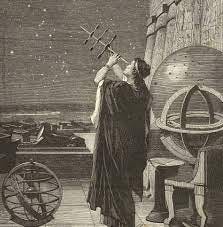The Skinning-Alive of Hypatia and the Burden of the West
Paganism as the Forbidden Prima Materia of Western Civilization
Hypatia of Alexandria was one of the most important intellectuals of the Byzantine Empire during the 4th Century. Born around 355—when the Roman empire had divided—Alexandria at this time was in a fractured state of religious and social unrest. While Pagans and Jews tolerated one another, the emerging cult of Christianity—having moved out of the Syrian desert—was increasingly making ground within the city using gang violence and proselytization to increase its influence.
Even so, Alexandria remained a culturally sophisticated metropolis. A beautiful city, which held the Library of Alexandria, containing more than half a million ancient scrolls. The city was a place where intellectualism could thrive, and central to this was Hypatia, a Pagan philosopher and scientist who was not afraid to speak her mind within a landscape of sectarianism and violence.
Having attained a level of sizable respect, Hypatia now in her 60s, had many admirers. One of whom was the Civil Governor of the city, Orestes (prefect of Egypt). The Civil Governor himself was also a Pagan who shared the same concerns with the Alexandrian Jews concerning the increasing power and intolerance of the growing Christian cult in the city.
Eventually, things came to a head when the Christians in the city started to expel the Jewish community. The high-ranking Pagans such as Orestes were appalled and sought legal intervention on the matter from the Roman government in Constantinople. Orestes then cultivated his relationship with Hypatia to strengthen a bond with the Pagan community of Alexandria, as he had done with the Jewish one, to better handle the sectarian tensions of the Egyptian capital.
Hypatia herself was not directly involved in these sectarian matters. She was a friend of Orestes as well as a Pagan which still made her a target for increasingly violent and fanatical Christians in the city. A Christian zealot magistrate named Peter the Lector whipped up a mob into a frenzy and hunted Hypatia down as she was en route to presenting a lecture.
The Christians pulled her from her carriage and proceeded to tear her clothes, dragging her along by her hair through the streets of the city. Hypatia was then hauled into a nearby church. There the mob stripped her and gathered ceramic roofing tiles and oyster shells that lay around the building. Using these to skin her alive in the name of Jesus Christ. Following her horrific death, the Christians dismembered Hypatia and burnt her alive as a sacrifice to their Christ.
The University of Alexandria, where she and her father Theon had taught, was then burned to the ground along with the thousands of ancient manuscripts contained within it. In the aftermath of her slaying, there was a mass exodus of Pagan and Jewish intellectuals and artists out of Alexandria and towards Persia. Thus began the great Darkening Age when Classical Europe fell into a thousand years of Christian intolerance, ignorance, and decay.





Hello Thomas! Again you knock it out of the Park. The darkness and evil at the heart of this story reflect perfectly the feeling that permeated last week in Chicago during the DNC… in that case driven by C333, other low level demons, and the hours of hatred focused on Trump.
The turmoil and chaos is likely part of the “necessary process” we’re going through…HOWEVER… be it Abrahamic, Choronzonic, Pol Potic, COVIDIC, scientisimic or other blind, woke-ish lunatic, religious fervor is like none I’ve seen or experienced before. Hypatia’s story is one that should be long-remembered… especially by the lame-ass feminist morons that yap yap yap yet say nothing. But on a lighter note…
It’s funny… my son and I have been discussing Hypatia this week, and our friend Orestes who lives in Greece… if you’d mentioned Voltaire (who he was reading to me tonight during an after dinner chat) it would have been the trifecta of synchronicities.
Anyway, thank you again for all you do and share. Looking forward to reading the HOCUS FOCUS BOOK… best regards and congratulations to you and Sara on your book launch!
I never heard of Hypatia so thanks to Thomas for this article.
I know enough about the history of Christianity to deplore the many crimes committed by those who claim to follow Jesus Christ. I know a lot less about the history of paganism. Maybe that reflects the adage that 'history is written by the winners'. And there can be no doubt that Christianity has reigned supreme for the last 2,000 years.
I don't believe we can ever know the truth of what happened in ancient times. No doubt there was good and bad on both sides. So I think it is better to draw a line under the past and start afresh.
I would like to see a genuine synthesis between paganism and 'proper' Christianity that will mark out Ireland as a tolerant and welcoming place for all seekers after the truth.